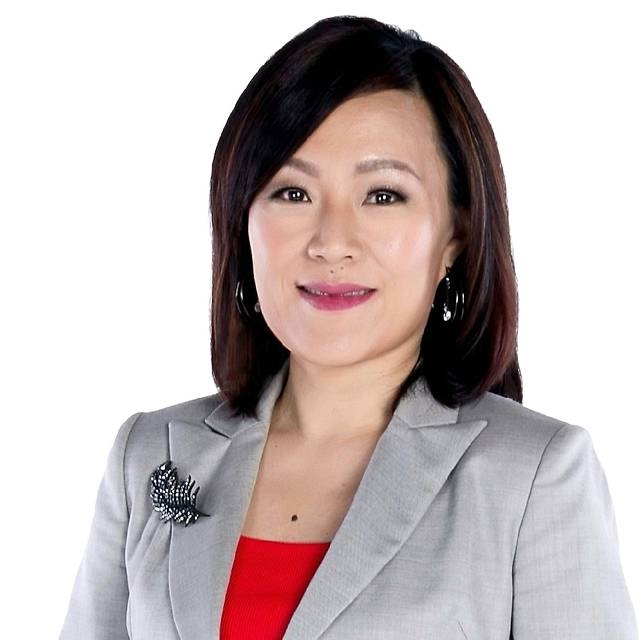Palau’s diplomatic ties with Taiwan to be tested in election year as tourism falters
Chinese tourists have stopped visiting since 2017, after China allegedly removed Palau from a list of approved destinations for its tour groups.
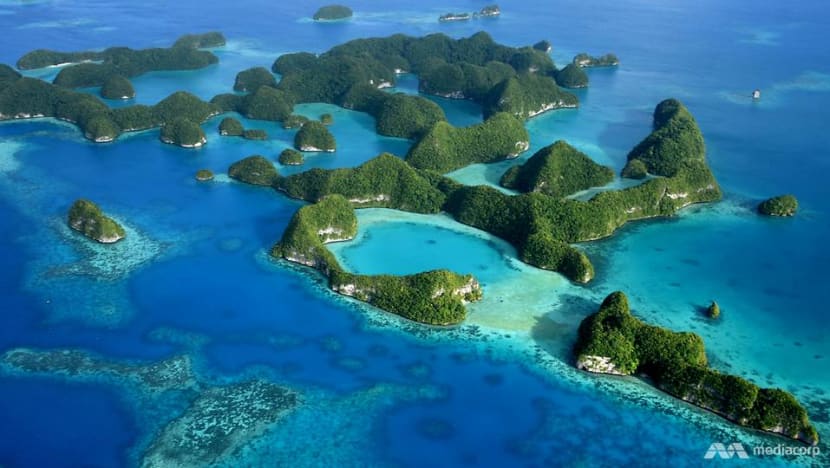
An aerial view of some of Palau's islands. (Photo: Matthew Mohan)

This audio is generated by an AI tool.
PALAU: Palau, a tiny Pacific nation with a population of less than 20,000 people, spans across 340 islands.
Its coral reefs are one of the seven underwater wonders of the world, boasting more than 300 species of coral and some 2,000 species of fish.
It is a popular destination for tourists from around the world.
When the COVID-19 pandemic subsided and the world slowly reopened in 2021, Taiwan became the first to launch a travel bubble with Palau.
As travel restrictions were lifted across the globe, Taiwan responded by increasing the number of flights to the island nation.
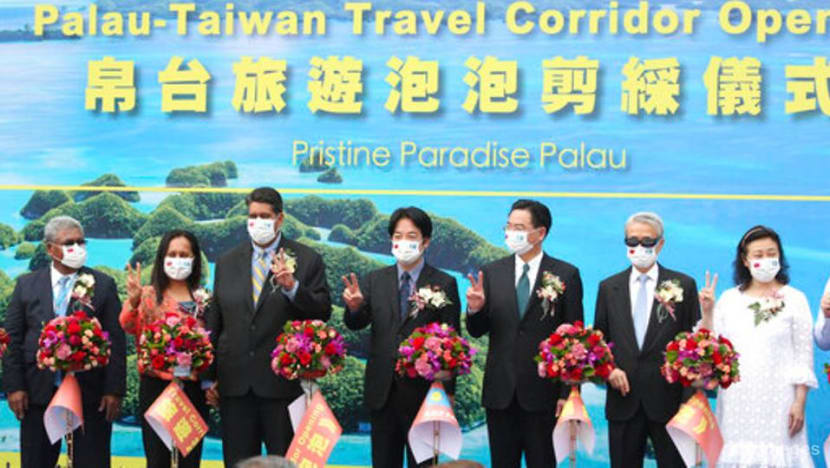
Despite Taiwan’s efforts, Palau’s tourism recovery has fallen short. The number of foreign visitors is less than one-tenth that of pre-pandemic levels.
One group is conspicuously missing – the Chinese.
BOYCOTT OVER TAIWAN TIES
The Pacific nation is traditionally a United States ally. It is also one of just 12 countries in the world that still maintain official ties with Taiwan.
As China seeks to further isolate Taiwan, Palau's tourism industry has suffered.
Chinese tourists have stopped visiting since as early as 2017, after China allegedly removed Palau from a list of approved destinations for its tour groups.
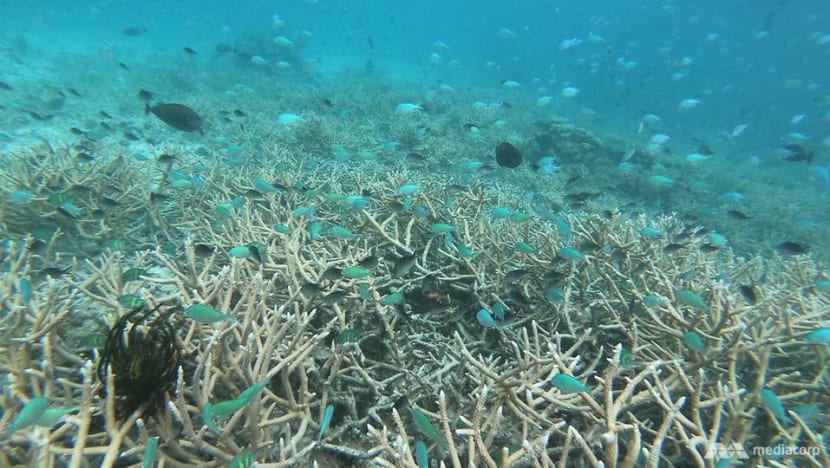
The number of foreign arrivals dropped by nearly half from around 160,000 in 2015 to 100,000 in 2018, according to Palau officials.
It dealt a heavy blow to the island country’s economy as tourism accounts for around 40 per cent of its gross domestic product (GDP).
Mr Vance Polycarp, a local who owns a diving centre in Palau, said he has been struggling to keep his business afloat. Most of his customers – even today – are Chinese who visit as individual tourists.
“I understand why there’s a boycott... (but) 95 per cent of our business is from China, so any disruptions or interference to that market impacts us,” he said.
WHAT DO LOCALS WANT?
While Mr Polycarp said he does not think Palau should switch ties to Beijing just for tourism income, he hopes his country would establish closer economic ties with China.
“I support both China and Taiwan… I hope in the future both can work their differences out, and the US (as well),” he added.
“(China) is a huge market and I think Palau can tap into it. But having these differences really limit us from moving forward (in) developing our country.”
His sentiment is shared by other business owners, including 29-year-old Iked, another local who also runs a diving centre.
“From a tourism perspective, we’re open to the Chinese market, but we’re also open to the Taiwan market,” he said.
“Palau has strong ties with Taiwan, and that’s a good thing. But I don’t think we should discriminate on what kind of tourism we bring into Palau, because Palau is a very international country.”
“WEAPONISING” TOURISM
China considers countries that still maintain official relations with Taiwan as interfering in its internal affairs.
Beijing has dangled promises of economic and development aid in efforts to entice Taiwan's remaining diplomatic allies to switch sides.
Palau President Surangel Whipps Jr has accused China of economic coercion and “weaponising” tourism to force his country to cut ties with Taiwan.
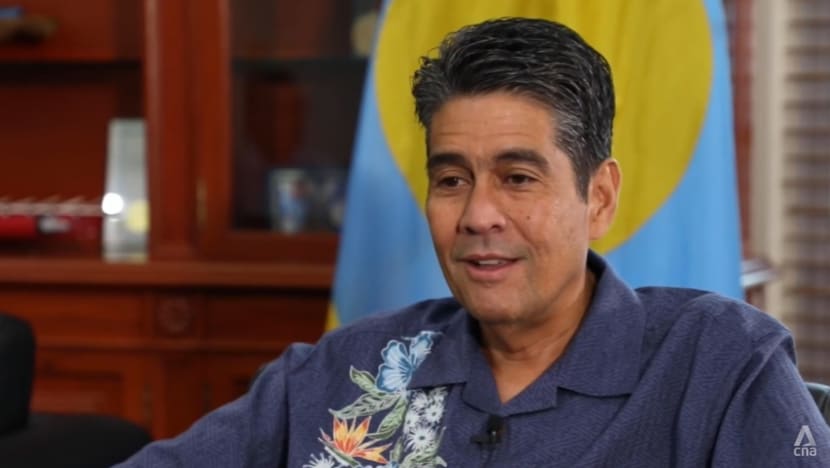
He told CNA in a previous interview in May: “One of the ambassadors from China told me: 'With us, the sky’s the limit. We have 1.4 billion people. If you need a million tourists, we’ll give you a million tourists. All you have to do is denounce Taiwan.'”
However, the president has said he will stand his ground, even if it means jeopardising his political standing this election year.
NOV POLLS WILL TEST TAIWAN TIES
Mr Whipps and his policy for Taiwan will face a crucial test when Palau goes to the polls in November.
The Palauan leader will be seeking a second term in office, amid growing pressure within his government for the country to switch ties.
“As long as I’m president, I’ve already said no to switching to China. I don’t know if it’s a good thing in this political year,” he said.
The leading opposition is former president Thomas Remengesau Jr. During his terms at the helm that ended in 2021, he had stated his administration remains steadfast in Palau's diplomatic relationship with Taiwan.
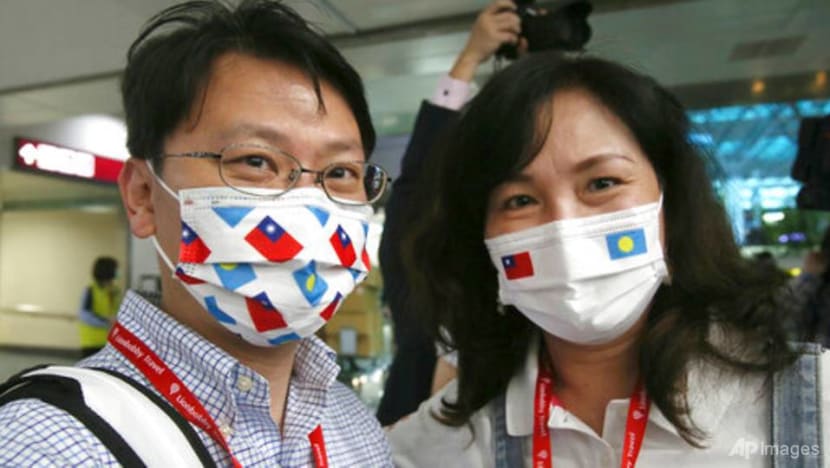
Mr Whipps also alleged that China would attempt to meddle in the country's upcoming general election.
In response, Chinese foreign ministry spokesperson Mao Ning in June said that China has no interest in interfering in the internal affairs of any country, but urged Palau to uphold the one-China principle.
Professor of international relations and strategic studies Alexander Huang Chieh-cheng, from Tamkang University in Taiwan, said Palau has an obvious dilemma.
“In the long-term interests of Palau, it is a choice between Chinese tourists for their GDP growth, or stick with their values and a long lasting friendship with Taiwan,” he told CNA's East Asia Tonight programme.
“But China uses tourism as part of its foreign policy leverage against many countries. So, Palau is not alone.”








